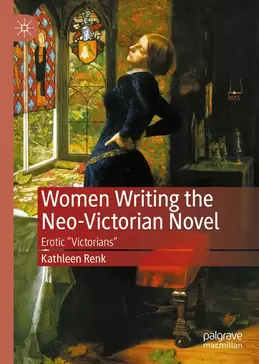|
Women Writing the Neo-Victorian Novel: Erotic “Victorians” focuses on the work of British, Irish, and Commonwealth women writers such as A.S. Byatt, Emma Donoghue, Sarah Waters, Helen Humphreys, Margaret Atwood, and Ahdaf Soueif, among others, and their attempts to re-envision the erotic. Kathleen Renk argues that women writers of the neo-Victorian novel are far more philosophical in their approach to representing the erotic than male writers and draw more heavily on Victorian conventions that would proscribe the graphic depiction of sexual acts, thus leaving more to the reader’s imagination. This book addresses the following questions: Why are women writers drawn to the neo-Victorian genre and what does this reveal about the state of contemporary feminism? How do classical and contemporary forms of the erotic play into the ways in which women writers address the Victorian “woman question”? How exactly is the erotic used to underscore women’s creative potential?
ISBN: 978-3030482893 (MacMillan) Pages (hc): 283 $99.99 (hc). $9.99 (eb) |
PRAISE
“This is a highly accomplished reading of neo-Victorian writing in close comparison with the Victorian fiction on which the genre draws. Focused on ‘eros’ as a creative energy potentially empowering to women, it offers a fresh perspective on the question of whether neo-Victorian fascination with Victorian sexuality is a creative revisioning or simply prurient. Offering new readings of canonical novels alongside discussion of lesser-known work, this book will have much to offer Victorianists and neo-Victorianists alike.” (Kate Mitchell, Associate Professor of Literary Studies, Australian National University)
“This is a highly accomplished reading of neo-Victorian writing in close comparison with the Victorian fiction on which the genre draws. Focused on ‘eros’ as a creative energy potentially empowering to women, it offers a fresh perspective on the question of whether neo-Victorian fascination with Victorian sexuality is a creative revisioning or simply prurient. Offering new readings of canonical novels alongside discussion of lesser-known work, this book will have much to offer Victorianists and neo-Victorianists alike.” (Kate Mitchell, Associate Professor of Literary Studies, Australian National University)
